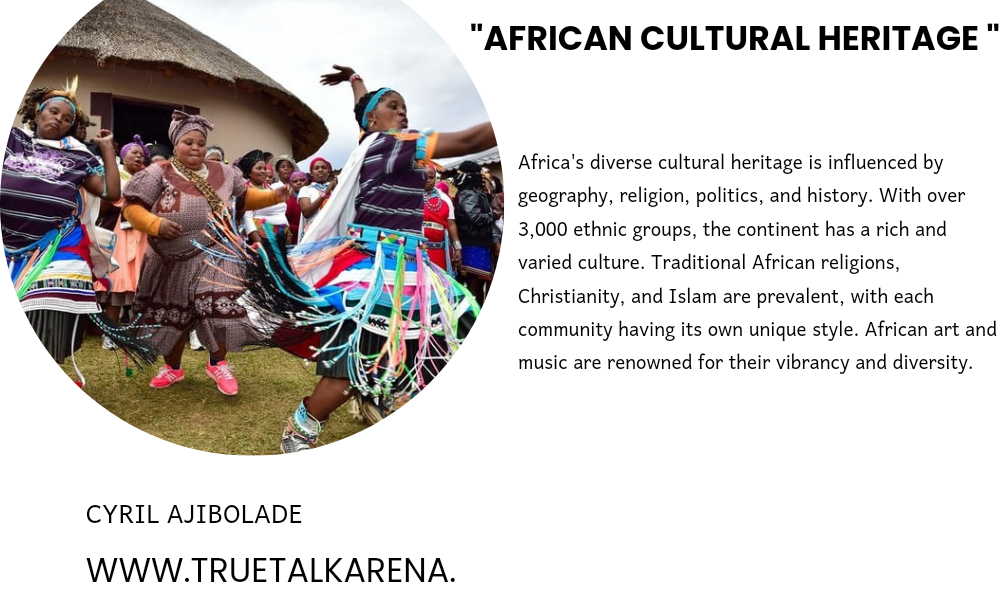
"AFRICAN CULTURAL HERITAGE"
Africa is widely recognized as a continent with rich and diverse cultural heritage. Its culture is highly influenced by its geography, religion, politics, and history. The continent boasts of over 3,000 ethnic groups, each with their unique culture and customs. This article aims to provide a comprehensive overview of African culture, and how it has evolved over the years.
Geography and Environment
Africa is divided into five regions- North Africa, East Africa, Central Africa, West Africa, and Southern Africa. The continent is home to several environments, ranging from deserts, grasslands, forests, and mountains. These environments have played a vital role in shaping the cultures of the different regions. For example, the Masai people of Kenya and Tanzania, who are pastoral nomads, have a culture that revolves around cattle-herding. On the other hand, the Igbo people of Nigeria, who live in a forested area, have a farming-based culture.
Religion
The diverse religious beliefs in Africa can be divided into three main categories: traditional African religions, Christianity, and Islam. Traditional African religions vary from one community to another and are often characterized by a belief in a supreme being, ancestor veneration, and spiritual practices. Christianity and Islam were introduced to the continent by European and Arab traders during the pre-colonial era and have since played a significant role in shaping African cultures and societies.
Arts and Music
African art is renowned worldwide for its uniqueness, vibrancy, and diversity. African art includes sculptures, paintings, textiles, jewelry, and musical instruments. African music is also highly diverse, with different regions and ethnic groups having their unique styles and instruments. African drumming, dance, and singing are all vital parts of traditional African music.
Family and community
Family is an essential aspect of African culture. In many African communities, the extended family is the primary unit of society. The concept of ubuntu, which translates to "I am because we are," is a vital cultural principle in many African communities. It emphasizes the importance of community and social support in everyday life. The extended family provides a safety net for its members and helps to build strong social bonds that endure beyond the individual.
Cuisine
African cuisine is diverse and reflects the continent's rich heritage. It varies from region to region, and each community has its unique dishes and cooking techniques. However, many dishes use similar staple foods such as maize, cassava, yams, plantains, and beans. Meat and fish are also crucial ingredients in many African dishes.
Colonialism and Globalization
The legacy of colonialism has had a significant impact on African cultures and societies. Colonialism disrupted traditional African ways of life and replaced them with Western ideas and practices. This cultural imperialism was perpetuated through education, religion, and governance systems.
Globalization has also impacted African culture, bringing new ideas, practices, and technologies. It has led to the emergence of new cultural forms, such as hip hop music and fashion, which blends African and Western influences.
In Conclusion,
African culture is diverse, rich, and continually evolving. Though there are many similarities across the continent, many differences exist among ethnic groups and regions. It is crucial to recognize and appreciate the value of this diversity as it contributes to a tapestry of cultures that enriches humanity.



0 COMMENTS